The Bagpipe Society
Performers and Workshop Leaders
Cassandre Balosso-Bardin and Phil Alexander: Improvisation on a harmonic grid for bagpipes and accordion.
Cassandre and Phil’s biographies
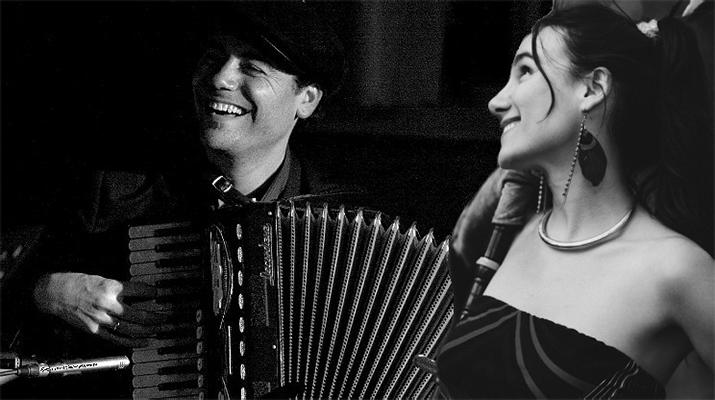
(Phil will be playing a chromatic accordion, but all harmony instruments are welcome as well as pipers).
Talk: From India to Northern Africa: a tale of lesser-known bagpipes
Based on research carried out at the Metropolitan Museum last year, I explore some of the lesser known instruments of the collection, and contextualise them with audio and visual examples. We will talk about the sruti upanga, the ney-anban, and the mizwid/sukra/chekwa, all of which are represented at the Met.
Fabrice Besson

Because building a musical language is not that easy on an instrument which has no volume control, bagpipers speak with their fingers, and with their arm on the bag. That’s why we will investigate two fundamental skills: Air management through the bag and finger management on the chanter.
3 main goals of the workshop:
- 1st: deal with air management: realise and understand the impact of air management on the bagpipe sound and the artistic speech.
- 2nd: ornamental guideline. Use the ornaments to build a musical language.
- 3rd : practice with exercises and tunes!
Iain Gelston - Undividing Division
In this workshop we will look at the tradition of 18th century variation sets, a central part of the bagpiping tradition of the north of England and lowland Scotland. We’ll discover how to create them, pick them apart, jumble them up and reassemble them to suit our taste.
Chris Walshaw - Spicing up the Tune
Using some traditional bagpipe-friendly tunes, we will look at ways of enriching and spicing up a tune, whether playing with a band or in a session, with harmony, improvisation, counterpoint and even rhythmic variations. An exchange of views and examples that should give even the beginner a few ideas. For bagpipes in G/C and D/G. Sheet music available.
Steve Tyler - Hurdy-Gurdy
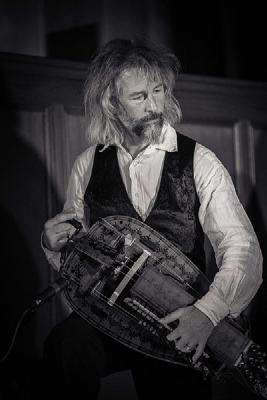
The workshop will look at rhythmic and melodic patterns to help synchronise melody and trompette, so expanding the repertoire of techniques used to embellish a melody. Material used will include a straightforward tune, a medieval piece and perhaps something in a less standard rhythm, with the group either playing in unison using various embellishments or playing polyphonic parts.
I usually use a D drone/trompette which allows for playing with D or G instruments (but if all participants favour C then that can be used – let me know in advance).
David Faulkner - Pipe Club
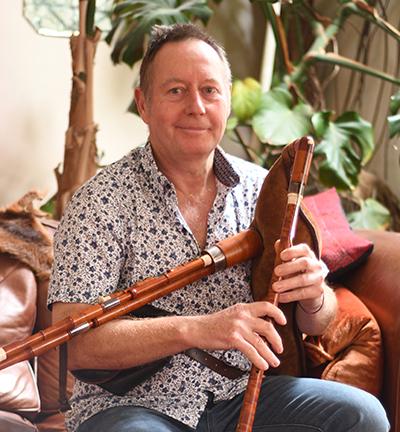
David will be hosting a Pipe Club. It will be a bit like a piping folk club where you can play the party piece that you have been working on; solo or with a friend or two. You can ask people to listen or to join in, your choice. It will be a safe space to share your music and have a go at performing in front of a friendly audience.
Performance time will depend on how many people are up for doing something. We will make sure everyone feels included and that we have some fun and make good use of the time.
Absolute Beginners (David Faulkner & Aisling Holmes)
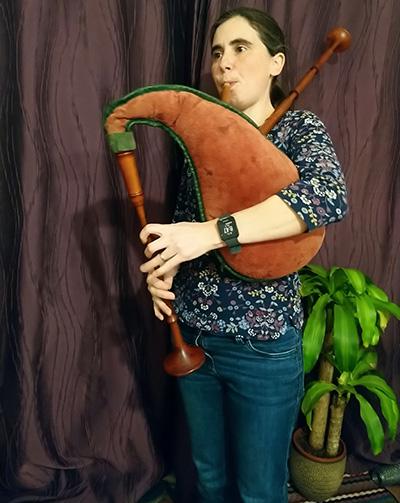
Student pipes will be provided. Please book one in advance to ensure you have one. These will be hands-on sessions where we get to play the pipes.
We’ll learn about the parts of the instrument, what they are called & how they work. We’ll work through how to hold the instrument and good posture, breathing and blowing and how to maintain steady pressure. We’ll think about tuning and drones, and start to look at fingering and the principles of gracing! You never know we might even learn a tune or two. So, lots to do & lots of fun!
Terry Mann - Pipers’ Surgery
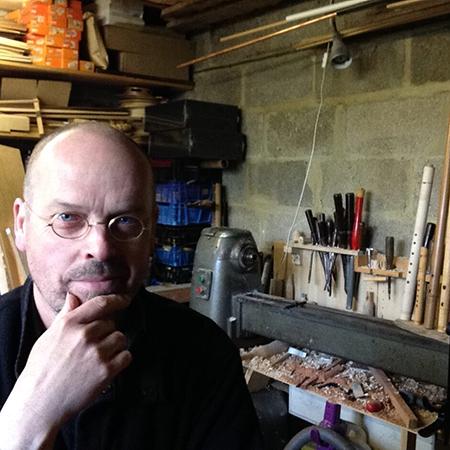
Now a regular feature of the festival, the ‘pipers’ surgery’ is principally for players of Southern English Border Pipes, but open to all, especially beginners and those at an intermediate level. Come with questions about technique, posture, repertoire, or practice and he will do his best to help!
Robert Hickman - Introduction to the italian ocarina
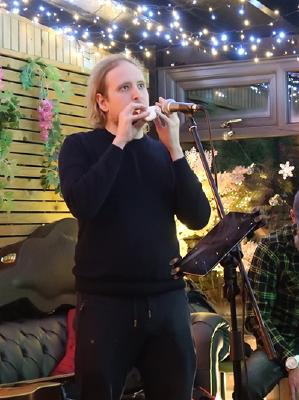
The italian ocarina is a 19th century ceramic instrument. They are remarkably similar in range, melodic and ornamental capability to the French bagpipe, and have a distinctive pure timbre.
Learn the basics of playing the ocarina and the commonalities between ocarinas and bagpipes in this workshop, with instruments available to borrow. We will be using Alto G ocarinas.
It will accommodate users of sheet music as well as those who play by ear, and will assume ability to copy a rhythm by ear as well as awareness of the standard pitch names. I am going to teach breath control. The workshop is going to assume some proficiency with music and won’t be catering to total beginners to playing instruments. Also, i’ll have approximately 10 instruments for lending
Ross Calderwood - Smallpipes in D
Smallpipes in D (any level) Tunes & techniques for intermediate players - there is also the opportunity to try out the smallpipes - some loan instruments will be provided by the Bagpipe Society.
Saturday Bal Folk:
Oscina
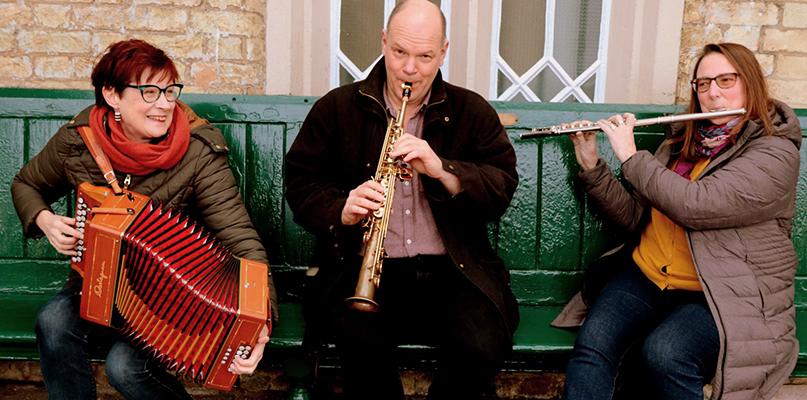
Oscina weave tantalising tunes and spellbinding songs for concerts, balfolk & Euro-dances. The band brings together three accomplished musicians to create their unique and captivating sound … Anna Pack (diatonic accordions), Frances Watt (voice, flutes) and Chris Walshaw (pipes, sax, whistles). Together they create mesmerising dance music to lose yourself in.
Fabrice Besson & Julian Sutton - Deux Terres

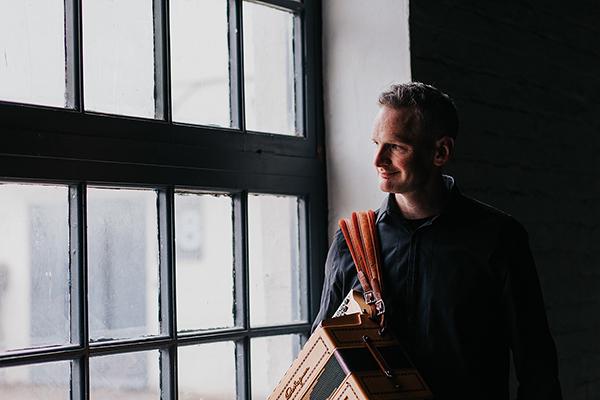
Fabrice’s biograpy and Julian’s biograpy
Julian first met French bagpipe maestro Fabrice Besson at the Fête des Chavans, Embraud (France) in 1998. They later teamed up to win the duo competition at St Chartier festival in 2002 and went on to conceive the project ‘Deux Terres’ as a bringing-together of the music and influences from their native regions, North-East England and Central France. They recorded the album, ‘Deux Terres’ in 2007 and have since performed together at numerous traditional music festivals and events in France and the UK.
- Data Processing Notice (GDPR)
-
@BagpipeSociety on X (formally known as Twitter)
-
TheBagpipeSociety on Instagram
-
 BagpipeSociety on Facebook
BagpipeSociety on Facebook
Something wrong or missing from this page? Let us know!
